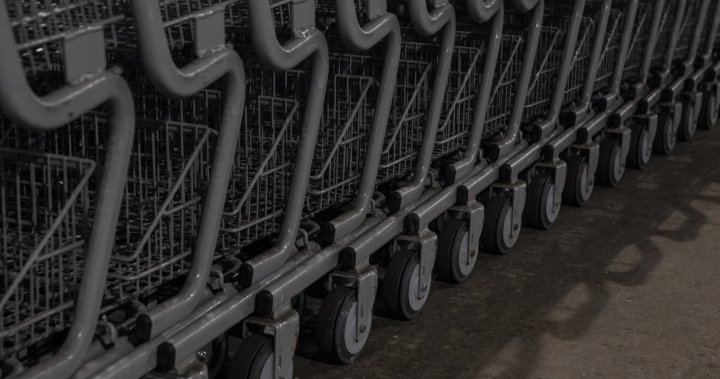Industry Minister François-Philippe Champagne says he is working hard to try to rein in high grocery prices, despite there being no windfall tax for grocers in the 2024 budget after prior threats to impose tax measures if prices weren’t brought under control.
In an interview on The West Block, Champagne told host Mercedes Stephenson that he still believes competition remains the best way to rein in food prices.
“We have too much concentration when it comes to grocers in the country,” Champagne said.
In recent months, Champagne says he has been courting foreign grocers to enter the Canadian market.
He says he will make announcements once there are deals finalized, but an unnamed American grocer pointed out a significant hurdle to entering the northern market.
“I met one of them in the United States, and the biggest hurdle they had was about leases. They could not find 400 or 500 leases or properties to lease in the country despite them being very big, billions of dollars,” Champagne said.
“So, is it easy? No. Is it worth trying? Definitely.”

As part of the 2023 fall economic statement, the government introduced reforms to the Competition Act with a focus on grocers. Key among them, giving the Competition Bureau subpoena power to collect information from companies like grocers as part of market studies and making it illegal for corporate grocers to prevent independent stores from setting up shop in the same commercial building.
The email you need for the day’s
top news stories from Canada and around the world.
In his interview on The West Block, Champagne hinted that these reforms have American grocers taking another look at Canada.

On Thursday, Champagne took part in a “historic” announcement in Alliston, Ont., with Prime Minister Justin Trudeau, Ontario Premier Doug Ford and Honda executives on the Japanese automaker’s $15-billion investment in electric vehicle production.
The plan includes retrofitting the existing Honda plant in Alliston to make purely electric vehicles and building a battery production plant nearby and two battery parts manufacturing facilities elsewhere in Ontario.
“It’s sending a signal to the world that we have the best workers in the world, that the place to invest is in Canada, because now we have the full supply chain when it comes to batteries and electric vehicles. Honestly, today is really a game-changer. It’s kind of historic,” Champagne said.
Work on retrofitting the Alliston Honda plant is expected to be concluded in 2028, with an annual production target of 240,000 electric vehicles annually.
The federal government has a goal of having all new consumer vehicles sold in Canada be zero-emission by 2035.
When asked if the government is doing enough to build infrastructure to power and charge all these electric vehicles, Champagne focused more on vehicle production but said more needs to be done.
“Well, we’re going to do more. And this is great because when you have an investment like that’s kind of a catalyst,” Champagne said.
© 2024 Global News, a division of Corus Entertainment Inc.




